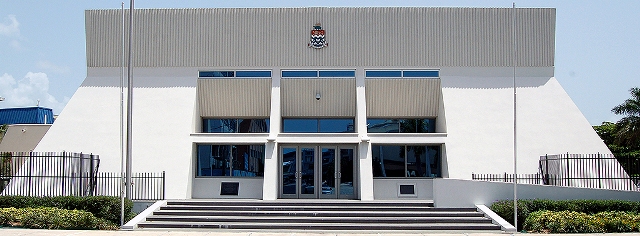 The Cayman Islands Government is being excessively careful in walking the line between value for money and local preferences.
The Cayman Islands Government is being excessively careful in walking the line between value for money and local preferences.
[This is an extract from an article in The Round Table: The Commonwealth Journal of International Affairs.]
The Cayman Islands (Cayman) is better known for its idyllic beaches and offshore qualities than for its bureaucracy. It is among the richest areas in the Caribbean, boasting a GDP of CI$ 2.7 billion (USD 3.24 billion) and a fast-increasing population of 65,000 people within roughly 102 square miles. This three-island country is located to the South of Cuba with numerous links to North, Central and South America, including the United States, Cuba and Panama. Cayman offers an unmatched financial environment for corporations, being the 10th largest international financial centre and the 9th largest in terms of cross-border assets and liabilities, with foreign assets reportedly ‘amounting to 1,500 times [its] domestic economy’. It is also a British Overseas Territory (BOT), where the UK retains sovereignty and appoints a Governor with overarching veto power, while leaving law-making to the local Legislative Assembly. Such a combination of economic, financial and constitutional factors makes Cayman unique. Its attitudes to public management, however, are less well known. Only limited academic research and governmental reports have covered aspects of the Cayman’s offshore jurisdiction character, economic outlook, local tourism industry and hazard management. Cayman, within the wider group of British Overseas Territories, has also been considered focusing on strategic, defence and diplomatic issues. Governance research about Cayman is emerging slowly, with prior research concluding that good governance remains a work in progress despite some improvement. This article reassesses the new governance framework by listening to local stakeholders.
A push for good governance as a means to attract more investors has encouraged Cayman to implement a comprehensive and modern public procurement framework. This is the area of the law that regulates public purchases with the private sector, though there is no unique definition: the United Nations Commission of International Trade Law has defined it as ‘acquisition of goods, construction or services by a procuring entity’; the Organisation for Economic Cooperation and Development describes it as ‘the purchase by governments and state-owned enterprises of goods, services and works’; the European Union identifies it as the ‘acquisition of works, supplies or services for consideration by means of a public contract’. Fine distinctions aside, public procurement is a powerful governance tool which serves several functions: when done properly, it facilitates the provision of public goods, works and services under conditions of objectivity, fairness, competition, integrity and transparency in public business whilst delivering value for money and achieving policy objectives. For Cayman, the novelty of the system and the small size and population of the island bring multiple opportunities for public procurement to play not only an administrative but also a policy role, while testing new approaches in the Caribbean.
Cayman represents a rare opportunity to research a new public procurement framework. This article identifies challenges that Government stakeholders expect to solve via public procurement and critically assesses the course of action taken. Section 2 sets out methodology and data contextualisation. The article’s main findings are structured in three main sections examining financial probity (section 3), infrastructure building, expansion and renewal (section 4) and embedding competition in the local marketplace (section 5). The article concludes that Cayman is overestimating public procurement as the solution to its main challenges: progress is reasonable but greater effort is required to uproot a deeply embedded local culture of uncompetitiveness.
Laura Panadès-EstruchTruman is with the Bodden Law School of the Cayman Islands, George Town, Cayman Islands.



